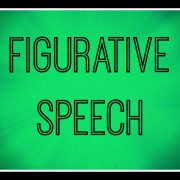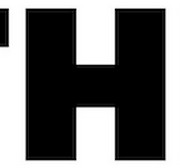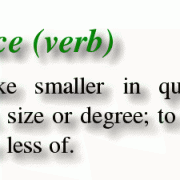Dyslexia, ‘Should I Have My Child Tested?’
By: Janet A. Hellis, M.A. Michigan State University
English Language Consultant, Private Tutor, Former University Instructor and Teacher Trainer
It is thought that the earlier a child with dyslexia is diagnosed, the more effective their future treatment will be. However, this may in fact not be possible or practical. Most cases of dyslexia in children are not noticed until a child starts school and begins to experience difficulty with reading, spelling or math.
Identifying Dyslexia
In practice, identifying dyslexia in younger children can be very difficult for both parents and teachers because the signs and symptoms are often subtle. In addition, some of the early signs of what ‘might be’ dyslexia, such as reversal of certain letters when writing, most commonly the letters b, d and p, q as well as numbers 2, 3, 6 and 9, is something that many children do, but eventually grow out of. Children, who are not dyslexic, usually stop reversing these letters by the end of second grade or by the age of seven to eight. Rushing into a ‘general’ diagnosis of dyslexia, based solely on one or two symptoms, is not a recommended and may cause more psychological damage than if you had waited. Certainly, diagnosing of dyslexia should be performed by qualified clinical diagnosticians.
Certainly, if letter reversals when writing, are persistent and continue beyond the age of nine and if the child is experiencing difficulties in pronouncing words, skipping entire words or phrases, or skipping entire lines when reading, a closer examination of the cause is warranted. Parents and teachers can also, when listening to the child read out loud, determine if their child has early continuing difficulties with differentiating sounds, particularly at the beginning or end of a word, which can also be a sign of possible reading difficulties in the future.
A child who appears perfectly normal, may gradually become anxious about school, and may refuse to go. The child, left undiagnosed and therefore, not treated for dyslexia, often feels frustrated and cannot understand why they are having such difficulty with learning skills that other children in their class find straightforward. Alone and without help, these children are left to their own coping devices, sometimes with success, but more than often, they needlessly fall behind academically.
Many children, including younger children, may develop ways to compensate for their dyslexia, such as relying on their long-term memory more than usual or by ‘picturing’ the whole word. This ability may make a quick diagnosis even more complex as the ‘way’ the child compensates is not easily seen by the teacher or parent. Indeed, having dyslexia is not synonymous with low intelligence. On the contrary, in many cases, children who are dyslexic tend to have high levels of intelligence, thus their ability to find unique and creative ways of compensating for their brains inability to process visual queues normally.
Unfortunately, in Greece, there are no mandatory government screening programmes that have been suggested for children starting school. Having your child diagnosed and treated remains the responsibility of educators and parents.
Before Diagnosing Dyslexia – Check for Other Health Problem
If you are concerned about your child’s progress with reading and writing, you should first talk to their reading teacher. If your child has private lessons with an English teacher, you may also want to discuss your child’s progress in reading and writing in that lesson as well. In addition, you may want to meet with other staff in the school. If you or your child’s teacher has a continuing concern, you should take your child to visit your family doctor or pediatrician. It may be that your child has health problems that are not connected to dyslexia but are affecting their ability to read or write. For example, they may have:
- vision problems – such as short-sightedness (myopia) or a squint (strabismus)
- impaired hearing – as the result of a condition such as glue ear
- other conditions – such as attention deficit hyperactivity disorder (ADHD)
If your child does not have any obvious underlying health problems to explain their learning difficulties, it may also be that they are not responding very well to the method of teaching that is being used.
To help them learn to read, an approach can be used where words are understood by learning sound-letter matching and by sounding out and building up words using a method that is known as synthesis and segmentation.
If your child is still having difficulties, the next stage would be for them to receive additional teaching and support, possibly using a different approach, such as smaller group work or one-to-one teaching, and frequent ‘short burst’ inputs – for example, two to three times a day for 15 minutes. If this support is not able to be found within the public or private schools they attend, then having a good qualified and experienced Private Tutor, for one hour twice a week, and even three times a week, can make a great difference. With Private Tutoring, many children happily find their own learning style and may eventually excel in classes they otherwise may have failed. Many children, even those with mild or moderate dyslexia, usually make good progress with this type of support.
A more in-depth assessment may be recommended if concerns still exist about your child’s progress after they have received additional teaching and support. The assessment will be carried out by an educational psychologist, who will be able to support the teacher, child and parent and help them to understand the child’s learning difficulties, as well as suggesting targeted support to help with the difficulty.
A Short Preliminary Test: If you answer ‘Yes‘ to four or more of these questions, then your son or daughter may be dyslexic, and it is recommend that he or she takes a proper diagnostic test to receive a full assessment:
| • Are there any family members who experienced difficulty learning to read or spell when they were at school? |
| • Is your child experiencing reluctance to go to school or feelings of failure at school? |
| • Does your child have difficulties with spelling? |
| • Does your child miss out words when reading? |
| • Does your child have difficulty reading aloud? |
| • Does your child sometimes skip lines when reading? |
| • Does your child experience difficulty copying from the board? |
| • Does your child get confused about following instructions, for example when playing a game? |
| • Is your child unable to count backwards from 100 down to 0? |
| • Is anyone in your family left-handed? |
Dyslexia can usually be confidently diagnosed if a child’s reading and writing skills are poorly developed, despite appropriate teaching methods having been used, and their other abilities, such as their understanding of logic or their verbal skills being unaffected.
After your child has been assessed, you will receive a report that outlines their strengths and weaknesses, and what could be done to try to improve the areas that they are having difficulties with. Understanding what your child is good at and what they enjoy is an important step in developing an educational plan that tackles their weaknesses. Being aware of having Dyslexia, can be an extremely positive asset.
The Power of the Gift of Dyslexia.
It is often thought that those diagnosed with dyslexia are held back by their disability. The reality, however, is that there are many notoriously famous people both in the past and the world today who have overcome this disability in order to accomplish great things in their lives. From Hans Christian Andersen to Anderson Cooper, the list is endless. Just take a look at a few of these famous dyslexics and what they have accomplished:
Hans Christian Andersen was Danish author, best known for his children’s stories such as “The Little Mermaid”, “Thumbalina”, and “The Ugly Duckling”.
Walt Disney, was fired from the Kansas City new paper for not being creative, he was also labeled as slow as a child.
Ludwig van Beethoven was a German pianist and composer and is one of the most influential composers of all time. He continued to compose, perform, and conduct even after becoming completely deaf.
Orlando Bloom is an English actor best known for his role as Legolas in the “Lord of the Rings” trilogy and then as Will Turner in the “Pirates of the Caribbean” trilogy. He was also named the UNICEF Goodwill Ambassador in October of 2009.
Thomas Edison is an American inventor and scientist who has created innovations that have revolutionized the way things are done today. He invented the light bulb, phonograph, motion picture camera, and is credited with the creation of the first industrial research laboratory.
Charles “Pete” Conrad, Jr. was a naval officer for the American Navy, an engineer, an astronaut, and the third person to walk on the moon. He was the 20th person and the 10th American to fly in space and flew on the Gemini 5, Gemini 11, Apollo 12, and Skylab 2 space missions for NASA.
Leonardo da Vinci, an Italian inventor, is truly one of the original Renaissance men. He is best known for his art work. He is the creator of such masterpieces as “The Mona Lisa”, “The Last Supper”, and his drawing of the “Vitruvian Man”. He is also known for his technological conceptualization of the helicopter, the tank, the calculator, and many other modern day inventions.
Cher is an American singer, actress, director, and record producer but is best known as “The Goddess of Pop”. She got her start as half of the duo Sonny and Cher and has since won an Emmy Award, three Golden Globes, an Academy Award, a Grammy Award, a Cannes Film Festival Award, and a People’s Choice Award for her success in television, music, and film.
Anderson Cooper is a well known television personality as well as an American journalist and author. He spent many years filming journalism pieces in war-torn regions of Somalia, Rwanda, Bosnia, and is currently a commentator for CNN.
Tom Cruise is an American actor and producer who has had many leading roles in popular films throughout the past two decades. He has been proclaimed to be one of the few producers who can guarantee the success of of a billion dollar film franchise and is well known for his controversial support of the Church of Scientology.
Keira Knightley is an English model and actress who received her first break in international fame in the films “Bend it Like Beckham” and the “Pirates of the Caribbean” trilogy. “Forbes” magazine has listed her as the second highest paid actress in Hollywood, and is the only non-American actress to make this list. She has been nominated for several awards such as the Academy Award for Best Actress, two Golden Globe Awards for Best Actress, and the BAFTA Award for Best Actress in a Leading Role for her acting in the film “Atonement”.
And perhaps the most famous and amazingly brilliant of all Dyslexic Famous People….
Albert Einstein was a German theoretical physicist, author, and is one of the most influential scientists and intellectuals of all time. He has published over 300 scientific and over 150 non-scientific works and has received several honorary doctorate degrees from numerous American and European colleges. His name “Einstein” has in modern day, become synonymous with the word “genius”.
As you can see, there are a variety of famous dyslexics who have become famous in a variety of genres. There are so many more that could not be listed, however the list is almost endless. None of these famous names let their disability hold them back. Instead, they rose above their insecurities and became some of the most notable names in literary, musical, and film history.
About the Author:
Ms. Hellis has an M.A. in Education, Curriculum Development and Teacher’s Education, with an emphasis on Diagnosing Reading Difficulties and Dyslexia. She has been working with children and adults of all ages for more than 25 years, both in Michigan and Greece, and has helped many students with Dyslexia to achieve their goals of success.






